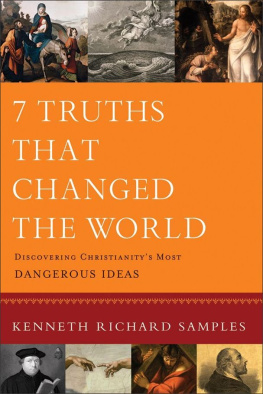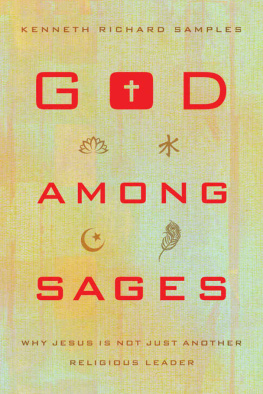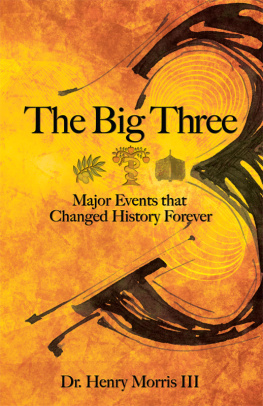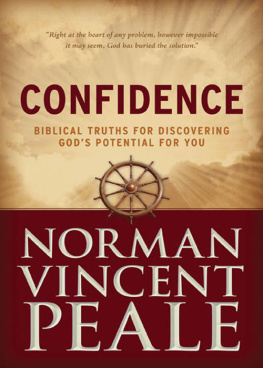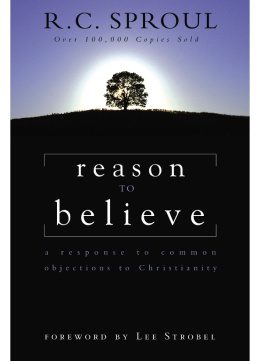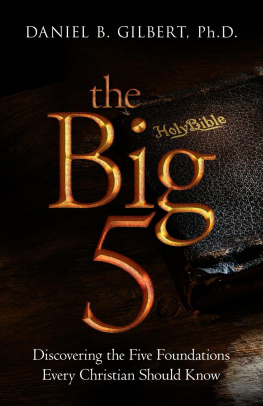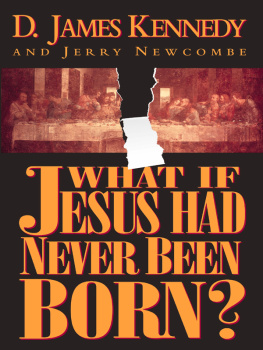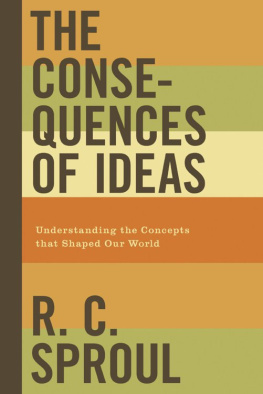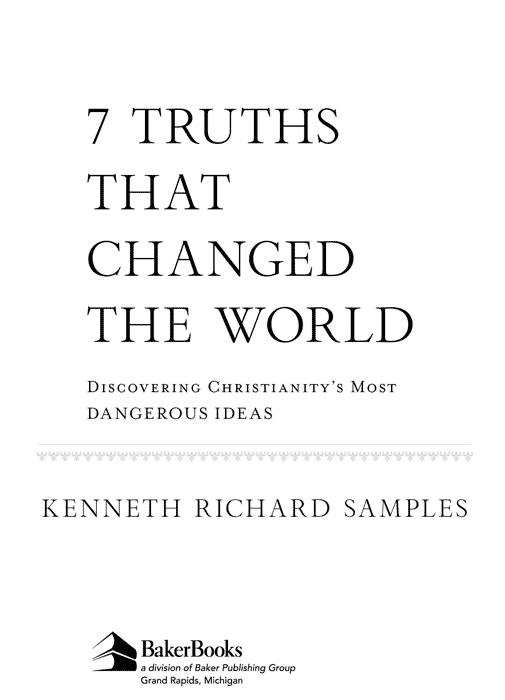
2012 by Reasons To Believe
Published by Baker Books
a division of Baker Publishing Group
P.O. Box 6287, Grand Rapids, MI 49516-6287
www.bakerbooks.com
Ebook edition created 2012
All rights reserved. No part of this publication may be reproduced, stored in a retrieval system, or transmitted in any form or by any meansfor example, electronic, photocopy, recordingwithout the prior written permission of the publisher. The only exception is brief quotations in printed reviews.
ISBN 978-1-4412-3850-4
Library of Congress Cataloging-in-Publication Data is on file at the Library of Congress, Washington, DC.
Unless otherwise indicated, Scripture quotations are from the Holy Bible, New International Version. NIV. Copyright 1973, 1978, 1984, 2011 by Biblica, Inc. Used by permission of Zondervan. All rights reserved worldwide. www.zondervan.com
Scripture quotations labeled NASB are from the New American Standard Bible, copyright 1960, 1962, 1963, 1968, 1971, 1972, 1973, 1975, 1977, 1995 by The Lockman Foundation. Used by permission. www.lockman.org
Scripture quotations labeled NIV 1984 are from the Holy Bible, New International Version. NIV. Copyright 1973, 1978, 1984 by Biblica, Inc. Used by permission of Zondervan. All rights reserved worldwide. www.zondervan.com
Scripture quotations labeled NLT are from the Holy Bible , New Living Translation, copyright 1996, 2004, 2007 by Tyndale House Foundation. Used by permission of Tyndale House Publishers, Inc., Carol Stream, Illinois 60188. All rights reserved.
While many Christians are accustomed to hearing that there is good evidence for their faith, far less common are arguments that point out how other worldviews are far inferior in terms of both evidence and explanatory power. Ken Samples develops a cumulative case for Christianity, arguing well that no other thesis even comes close to accounting for what we know about reality. 7 Truths That Changed the World is a very readable and recommended account that describes what Samples calls Christianitys seven dangerous ideas that best encapsulate the current state of the evidence.
Gary R. Habermas , Distinguished Research Professor, Liberty University
Ken Samples has combined clear thinking with clear writing to give us a guided tour through basic Christian truths. He shows us what those truths are, why we should believe them, and how they make better sense of the world than the alternatives. This book serves all kinds of people: those wanting to know about Christian belief, those whose Christian belief is wobbling, and those who, like good athletes, want to renew their commitment to doing the fundamentals well. Thanks be to God for this helpful, encouraging, and challenging book!
C. John Collins , professor of Old Testament, Covenant Theological Seminary
Ken Samples has done it again. He has written about some of the most important issues in life, with seriousness and depth, and then made it accessible to everyone. I hope 7 Truths That Changed the World is read in Bible studies and home groups around the globe. It has a transformative message and a style that can engage everyone.
Craig J. Hazen , professor and director of Christian apologetics, Biola University
One of the most skilled and thoughtful apologists of our time, Ken Samples, has done it again. His 7 Truths That Changed the World is a powerful reminder that Christianity is a truth claim which confronts the beliefs and values of our contemporary age at a number of critical points. But Samples is neither confrontational nor combative as he spells out seven aspects of the Christian truth-claim which stand in opposition to much of what our non-Christian neighbors hold dear. This is must reading.
Kim Riddlebarger , senior pastor, Christ Reformed Church, Anaheim, CA
To Sarah
Your intelligence, beauty, strong work ethic, and committed faith
make your mother and me deeply proud.
Contents
Introduction
Historic Christianitys Dangerous Ideas
Who said anything about safe? Course he isnt safe. But hes good. Hes the King, I tell you.
C. S. Lewis, The Lion, the Witch and the Wardrobe
T his line from my favorite book in C. S. Lewiss remarkable childrens series, The Chronicles of Narnia , makes it clear that Aslan, the Christ figure in the story, is not a tame lion. But his being dangerous does not rule out his profound benevolence.
Like Lewiss ferocious feline, ideas, including those of formal belief systems, can also be dangerous. And if Christianity encompasses ideas that are not safe, then is it not, therefore, a risky and even hazardous religion?
One of my longtime colleagues and friends, an atheist, agrees that historic Christianity includes dangerous ideas . From his atheistic point of view, however, the Christian faith affirms irrational and superstitious ideas that are not just unsafe but harmful. He believes these ideas are injurious both for those who believe them as well as for those who are affected by them. In fact, the emergence of the New Atheism movement was fueled by the conviction that religion is not merely false but indeed harmful .
In philosophy, theology, and science, provocative ideas that challenge the reigning paradigm reflect a radical shift in perspective. These ideas can have major implications for how people view reality, truth, rationality, goodness, value, and beauty, and they can sometimes contravene what many people believe. Not only do such revolutionary ideas threaten accepted beliefs, but they also contain explosive world- and life-view implications for all humanity.
Historic Christianity embodies numerous beliefs that are theologically and philosophically volatile (in the best sense of the term). The Christian faith contains powerful truth-claims that have transformed the church and turned the world upside down. Christianitys initial dangerous ideas started with twelve men (Jesuss apostles) and within three hundred years came to dominate the ancient Roman world. And for more than a thousand years after that, the historic faith dominated all aspects of Western civilization.
In the last couple of centuries, however, the world has been exposed to ideas that were dangerous in their own right. In the nineteenth century, Charles Darwins theory of evolution and Friedrich Nietzsches God is dead proclamation challenged everything Christian society held dear. These profound and unsettling naturalistic perspectives have propelled the secularization of todays educational institutions of the Western world. Accordingly, the public square in the West also increasingly reflects such beliefs and values.
The late twentieth century also saw the rise in the West of a new radical pluralistic and inclusivistic perspective. Postmodern thinkingin reaction to both traditional religion and secularismreflects a mixture of relativism, subjectivism, and pluralism. Thus todays marketplace of ideas is a smorgasbord of skeptical, secular, and religious viewpoints. But traditional religion now competes with religious inclusivism and pluralism.
The historic Christian truth-claims presented in this book can, then, be viewed as having a renewed sense of danger. The reason is that much of society today knows so little about the specific beliefs of classical Christianity. Therefore, many people are unaware of historic Christianitys unique perspective on God, Christ, the world, humankind, values, death, and suffering. The advance and entrenchment of secularism over the last couple hundred years make these Christian ideas fresh and explosive. Not safe, but good.
This book is divided into seven sections that address seven of historic Christianitys dangerous ideas. Each section is composed of two chapters that set forth why historic Christian truth-claims are both dangerous and good. The following summary gives you a brief foretaste of how these revolutionary ideas are framed, explained, and defended. This book is intended as an apologetic for the Christian faiths central beliefs and values.

